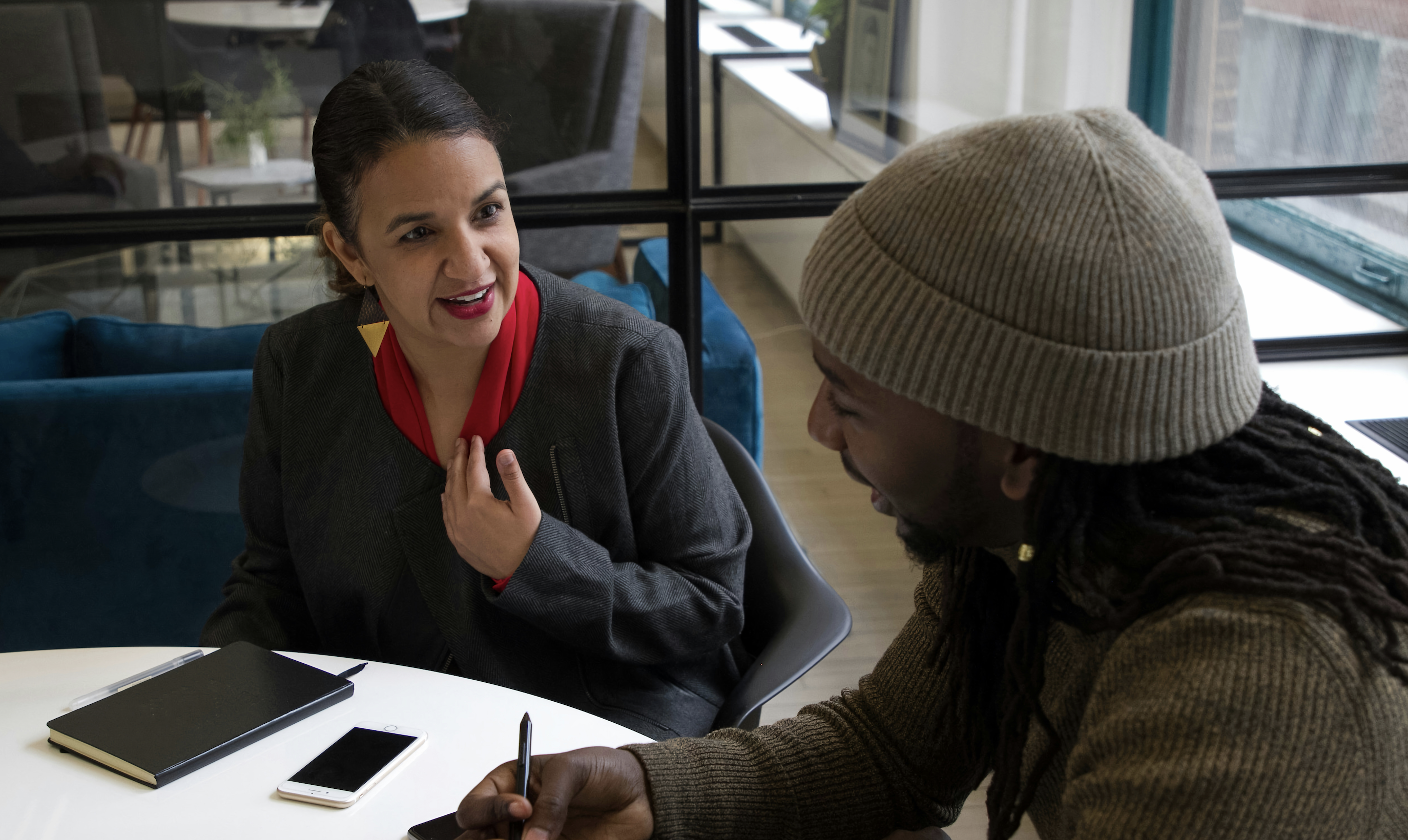Over the past decades, research-practice partnerships (RPPs) have proliferated across the United States. In one common RPP design, the research alliance (RA), a group of researchers—typically situated within a research university—enters into a long-term partnership with a practice-focused organization—often a local district central office—aimed at addressing practitioners’ pressing problems. District practitioners provide researchers with district data and knowledge of local contexts, while researchers provide rigorous research targeted to that district’s unique context and needs.
Our research team engaged in a four-year study of two well-established RAs to determine whether and how these partnerships supported learning and improvement within local education systems, and the challenges partners navigated along the way. Both RAs were operating in large, urban school districts for roughly a decade and each had over 30 publications. Further, both were recognized both locally and nationally as leaders within the RPP movement and have been suggested as templates for more emergent partnerships.
Our research revealed that while RAs can play an important role in bridging the historic divide between research and practice, there are also several obstacles RAs encounter when navigating stakeholders’ competing goals and expectations. In the remainder of this piece, we briefly describe the affordances RAs allow, the challenges facing RAs, and implications for their future.
Affordances of RAs: Leveraging Expertise and Democratizing Evidence
Both of the RAs in our study identified several advantages in their partnerships, from providing researchers and practice partners with complementary skills and knowledge to contributing valuable evidence about district policies.
Leveraging Expertise
We found ample evidence that practice partners appreciated the rigorous methods and data that supported researchers’ conclusions. In both partnerships, district staff frequently shared that researchers brought skills and knowledge that complemented those of the district. In one of the RAs in our study, district staff noted the benefit of working with a long-term research partner who could produce data and analysis that were beyond the district’s capacity and that directly responded to district’s problems of practice.
“District staff frequently shared that researchers brought skills and knowledge that complemented those of the district…”
Improving the Democratization of Research Evidence
Both partnerships also contributed considerable research evidence to the public knowledge base about district partners’ policies, as well as areas of strength and weakness in the implementation of those policies. To a degree, they opened up the “black box” of two large, urban district central offices. For example, one of the RAs in our study held research release events in which students, educators, and community members relevant to research projects were prominently featured alongside RA researchers and included funders and local district staff in attendance. Featured stakeholders directly shared their perspectives on phenomena central to RA research. Such events not only ensured that a broad audience learned about findings relevant to district initiatives, but further served to quite literally give voice to stakeholders who can traditionally be disempowered in traditional research and policy processes.
Navigating Challenges of Legitimacy, Alignment, and Learning
At the same time, our research revealed three core challenges RA partners must contend with in their efforts to support district improvement. We frame these core challenges as the legitimacy challenge, the alignment challenge, and the learning challenge.
“At the same time, our research revealed three core challenges RA partners must contend with…”
The Legitimacy Challenge
As the RPP field and its expectations for RAs evolved, both of the alliances in our study faced questions from their district partners and funders about the legitimacy of their contributions. We argue, based on our research, that RAs were designed to attend to three very different expectations: 1) the expectation that they contribute knowledge through the generation of research; 2) the expectation that they engage in more direct work with their district partners to change educational practice; and 3) the expectation that they align their work with the values, beliefs, and interests of students and families in their local communities. While these core expectations have consistently pressed on RAs, we find that the RPP field has increasingly come to prioritize work that engages more directly with practice and that aligns with community values over locally relevant, rigorous research. We found that both alliances struggled, albeit to varying degrees, to respond to these changing goals, raising concerns about their legitimacy.
The Alignment Challenge
As the goals of researchers, practitioners, and funders have diverged, the complex relationship between these three stakeholder groups complicated RAs’ abilities to establish and satisfy mutually-beneficial goals. Over time, as district officials and funders prioritized direct impact on district policies and outcomes, we found that the research organizations we studied were neither resourced, nor professionally incentivized to meet these new goals. First, the majority of researchers in the RAs we studied were experts in research methods but lacked expertise in district learning and improvement. Further, funders exercised considerably more power than practitioners or researchers in shaping RAs’ research agendas. Finally, professional incentives around publication and “rigorous” research often competed with incentives to support district improvement.
“As RPPs become more prevalent and mature, the field will likely continue to push researchers and practitioners toward increasingly ambitious goals…”
The Learning Challenge
RAs’ struggles to manage and respond to these misaligned goals, then, led to difficulties in building the kinds of transformational learning that was increasingly expected of them. While both RAs in our study fostered strong relationships with district partners and conducted methodologically rigorous research, we found that their largely atheoretical approach undermined the potential for significant learning for their district partners. Even when district practitioners found RA research valuable, the research proved insufficient to support practitioners in identifying, testing, and adjusting their existing theories of action. Without a deeper theoretical grounding, it was also challenging for district partners to generalize the findings of research to other, similar programs and policies, which limited the spread of any learning that did take place within individual subunits within the district.
What Does this Portend for RAs?
As RPPs become more prevalent and mature, the field will likely continue to push researchers and practitioners toward increasingly ambitious goals. Although ambitious goals are laudable, our research suggests that the challenges of legitimacy, alignment, and learning will likely never be fully mitigated, and RAs may find it difficult to live up to increasingly lofty expectations. But there are paths RAs can consider to manage those expectations and propel their work forward:
“It is important to ensure that expectations are commensurate with the capacity, resources, and designs of the organization we task with meeting those demands…”
- One potential path forward would be for RAs to more deliberately support district learning and improvement, if not sweeping system change. For example, RA researchers could support local practitioners to codify their working theories of action and design research that explicitly tests and provides feedback on those working theories. RAs could also further work to connect their research to broader theories of district effectiveness and improvement. Such a shift would likely require RA researchers to work more closely with their district partners and produce different types of research products, but this approach would allow RAs to focus on areas of strength and develop stepping stones to more transformational change.
- In a second potential path forward, RAs could partner with other organizations that bring explicit expertise in the improvement process—something that many RAs are likely to lack. For example, researchers and districts might partner with leaders of networked improvement communities (NICs), who bring improvement expertise around how to support transformational change in education systems. In this kind of partnership, RAs’ expertise in research methods and data analytics would complement NICs’ expertise in system transformation. Ultimately, such a pairing of complementary expertise would enable RAs to become key players in a broader ecosystem of improvers partnered with local school systems.
###
Given the increasingly ambitious agenda for RPPs, it is important to ensure that expectations are commensurate with the capacity, resources, and designs of the organization we task with meeting those demands. Regardless of the paths they choose researchers, practitioners, and funders should strive for greater transparency around their goals, capacity, and constraints.




